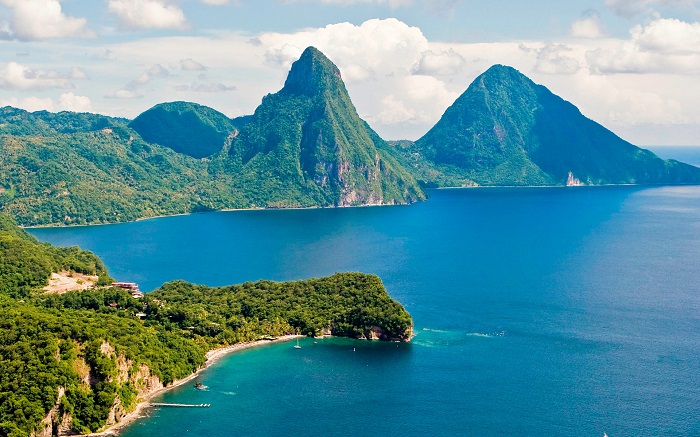Strange, low-pitched sound is coming from the Caribbean Sea

The sound was detected while researchers were analysing the sea level and pressure in the region over the past 60 years, in an attempt to predict what could happen in the future.
Their interest comes from the fact that the Caribbean Sea is an incredibly important part of the global circulation belt, responsible for forming currents that feed into the Gulf Stream. And if we want to understand how our climate`s going to change in the future, we need to better understand how hot and cold water moves around the planet.
So scientists from the University of Liverpool in the UK were looking at four different models of ocean activity to try and figure out some of the ocean dynamics in the region.
But pretty quickly, they realised something strange was going on - their models kept showing pressure oscillations across the Caribbean basin that just didn`t seem to add up.
"We were looking at ocean pressure through models for quite different reasons, and this region just didn’t work," one of the researchers, Chris Hughes, told Gizmodo. "It felt like a sore thumb."
To see if the strange phenomenon was actually real, they checked water levels and pressure readings taken from the bottom of the Caribbean Sea between 1958 and 2013, and also looked at readings from tide gauges and satellite measurements of gravity in the area.
It turns out the strange pressure oscillations were happening in real life, as well as in the models, producing a low noise that can best be described as a `whistle`.
It might not sound like much, but it`s so powerful, the effects can be measured in space, through oscillations in Earth`s gravity field.
So what`s going on here?
The sound is being caused by a large wave, known as the Rossby wave, which travels westwards across the ocean, and has been seen to disappear when it hits the west of the Caribbean basin, before appearing 120 days later on its eastern edge.
That disappearance was picked up a few years ago, and labelled the Rossby wormhole. But now the researchers have discovered that the wave is still interacting profoundly with the seafloor in the sea, causing it to whistle.
"We can compare the ocean activity in the Caribbean Sea to that of a whistle," explains Hughes. "When you blow into a whistle, the jet of air becomes unstable and excites the resonant sound wave which fits into the whistle cavity. Because the whistle is open, the sound radiates out so you can hear it."
"Similarly, an ocean current flowing through the Caribbean Sea becomes unstable and excites a resonance of a rather strange kind of ocean wave called a Rossby wave. Because the Caribbean Sea is partly open, this causes an exchange of water with the rest of the ocean which allows us to `hear` the resonance using gravity measurements," he added.
But because the Caribbean Sea is so much bigger than a regular whistle, it causes the sound to be much lower than we can hear.
As Stone explains for Gizmodo: "It takes 120 days for waves to propagate east to west in the basin, yielding an A-flat tone that’s roughly 30 octaves below the bottom of a piano."
The researchers have now labelled the phenomenon the Rossby whistle, and have published their results in Geophysical Research Letters.
Understanding how it works is pretty important to figuring out how the oceans in that part of the world will respond to climate variations in the future.
"This phenomenon can vary sea level by as much as 10 cm along the Colombian and Venezuelan coast, so understanding it can help predict the likelihood of coastal flooding," said Hughes.
The researchers also predict that the Rossby whistle might have an impact on the entire North Atlantic, by regulating the flow in the Caribbean Current, which is the precursor to the Gulf Stream. They`re now planning to investigate the phenomenon further to better understand how it affects ocean dynamics.















































